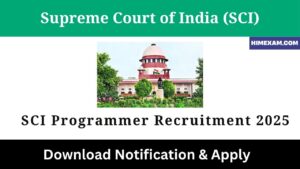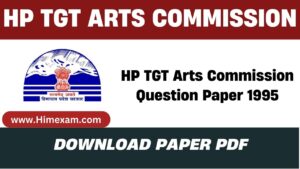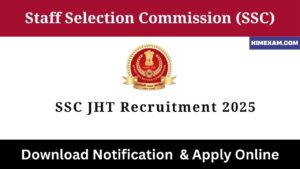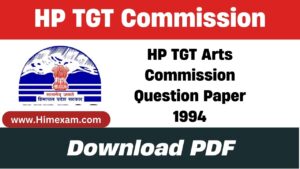Akbar Period MCQ Question Answer
||Akbar Period MCQ Question Answer||Akbar Period MCQ Question Answer in English||
1. The Battle of Haldighati was fought in
(A) 1756 A.D.
(B) 1576 A.D.
(C) 1756 B.C.
(D) 1576 B.C.
2. Who was the commander of Rana Pratap’s army in the Battle of Haldighati?
(A) Amar Singh
(B) Man Singh
(C) Hakim Khan
(D) Shakti Singh
3. In which of the following place Akbar was enthroned on getting the information of Humayun’s death?
(A) Kabul
(B) Lahore
(C) Sarhind
(D) Kalanour
4. The main aim of Akbar in fighting the Battle of Hadighati was
(A) To subdue Rana Pratap
(B) To polarise Rajputs
(C) To satisfy sentiments of Man Singh
(D) Imperial policy
5. The first matrimonial alliance with the Rajputs was established by Akbar with the house of
(A) Bundelas
(B) Kachhwahas
(C) Rathors
(D) Sisodias
6. Which amongst the following families was the first to have a matrimonial alliance with Akbar?
(A) Rathod
(B) Sisodiya
(C) Kachhwaha
(D) Chauhan
7. The Mausoleum (Dargah) of which Chishti Saint was visited by Akbar?
(A) Muinuddin Chishti
(B) Shaikh Nasimuddin Chirag Dehalvi
(C) Qutbuddin Bakhtiyar Kaki
(D) Shaikh Farid Sanj-ai-Shakar
8. Who among the following was personally killed by Akbar?
(A) Adham Khan
(B) Bairam Khan
(C) Baz Bahadur
(D) Pir Muhammad Khan
9. Which of the following Rajputana state did not accept the supremacy of Akbar willingly?
(A) Amber
(B) Mewar
(C) Marwar
(D) Bikaner
10. Which Rajput ruler continued his struggle for independence against Mughals and did not surrender?
(A) Raja Rai Singh of Bikaner
(B) Rao Chandrasen of Marwar
(C) Raja Bharmal of Amber
(D) Maharana Amar Singh of Mewar
11. Durgawati, who fought against Akbar, was the queen of
(A) Mandla
(B) Mandu
(C) Asirgarh
(D) Ramgarh
12. Abul Fazl’s death was caused by
(A) Prince Salim
(B) Abdur Rahim Khan-i-Khanan
(C) Prince Murad
(D) Prince Daniyal
13. Which one of the following factors is not conducive in establishing Akbar as a nationalist?
(A) Akbar had forsaken Islam
(B) Administrative unity and unity in Law
(C) Akbar’s effort at cultural unity
(D) Akbar’s religious policy
14. Who of the following Muslim rulers abolished the pilgrimage tax?
(A) Bahlul Lodi
(B) Sher Shah
(C) Humayun
(D) Akbar
15. Who among the following emperors may be called ‘an enlightened despot’?
(A) Babur
(B) Humayun
(C) Akbar
(D) Aurangzeb
16. Who among the following had ordered that a man should marry only one wife and could marry another only when the first wife was barren?
(A) Alauddin Khalji
(B) Sher Shah
(C) Akbar
(D) None of the above
17. The head of the military department under the recognised central machinery of https://himexam.com/wp-content/uploads/2021/12/Madhya-Pradesh-MP-PEB-Group-2-Sub-Group-4-Various-Post-Answer-Key-2021.jpgistration during Akbar’s reign was
(A) Diwan
(B) Mir Bakshi
(C) Mir Saman
(D) Bakshi
18. Military system in reign of Akbar was based on
(A) Mansabdari
(B) Zamindari
(C) Feudalistic
(D) Ain-i-Dahsala
19. The first person to be given proper status of the Diwan by Akbar was
(A) Asaf Khan
(B) Munim Khan
(C) Muzaffar Khan Turbati
(D) Raja Todarmal
20. The Mansabdari System introduced by Akbar was borrowed from the system followed in
(A) Afghanistan
(B) Turkey
(C) Mongolia
(D) Persia
21. Zabti system was introduced by
(A) Ghiyasudin Tughluq
(B) Sikandar Lodi
(C) Sher Shah
(D) Akbar
22. In which measures Todarmal achieved fame?
(A) Military campaign
(B) Land Revenue
(C) Humor
(D) Painting
23. Which revenue system among the following is also known as the Bandobast System?
(A) Zabti
(B) Dahsala
(C) Nasq
(D) Kankut
24. Which among the following systems of levying land revenue in Deccan was prevalent during the reign of Akbar?
(A) Kankut
(B) Number of ploughs
(C) Zabt
(D) Ghallabhakshi
25. Todarmal was associated to
(A) Law
(B) Land Revenue Reforms
(C) Literature
(D) Music
26. Who among the following was the connecting link between Sher Shah and Akbar in land revenue https://himexam.com/wp-content/uploads/2021/12/Madhya-Pradesh-MP-PEB-Group-2-Sub-Group-4-Various-Post-Answer-Key-2021.jpgistrative measures?
(A) Birbal
(B) Todarmal
(C) Bhagwandas
(D) Bharmal
27. During Akbar period, land revenue system ‘Ain-i-Dahsala’ was developed by
(A) Shahnawaz Khan
(B) Abdur Rahim Khan-i-Khanan
(C) Todarmal
(D) Mulla Do Pyaza
28. Akbar launched ‘Din-i-Ilahi’ in the year …. .
(A) 1570
(B) 1578
(C) 1581
(D) 1582
29. Which ruler had promoted ‘Din-iIlahi’?
(A) Babur
(B) Akbar
(C) Aurangzeb
(D) Shah Jahan
30. Which historian said ‘Din-i-Ilahi’ is a religion?
(A) Abul Fazl
(B) Abdul Qadir Badauni
(C) Nizamuddin
(D) Mohsin Fani
31. Who constructed Ibadat Khana?
(A) Aurangzeb
(B) Alauddin Khalji
(C) Akbar
(D) Firuz Tughluq
32. Ibadat Khana at Fatehpur Sikri was
(A) The mosque for the use of Royal Family
(B) Akbar’s private prayer chamber
(C) The hall in which Akbar held discussions with scholars of various religions
(D) The room in which the nobles belonging to different religions gathered to discuss religious affairs
33. Which monument is not at Fatehpur Sikri?
(A) Golden Palace
(B) Panch Mahal
(C) Jodha Bai Palace
(D) Akbari Mahal
34. Which historical monument in Delhi is a synthesis of Persian and Indian styles of Architectures?
(A) Qutub Minar
(B) Lodi’s Tomb
(C) Humayun’s Tomb
(D) Red Fort
35. The theory of ‘Sulh-i-Kul’ was promulgated by
(A) Nizamuddin Auliya
(B) Akbar
(C) Zainul Abidin
(D) Shaikh Nasiruddin Chirag
36. The concept of ‘Sulh-i-Kul’ (universal peace and fraternity) adopted by Akbar was the result of
(A) Political generosity
(B) Religious tolerance
(C) Liberal cultural attitude
(D) All of the above
37. Against which Mughal Emperor was a ‘Fatwa’ issued from Jaunpur?
(A) Humayun
(B) Akbar
(C) Shah Jahan
(D) Aurangzeb
38. Which of the following has built by Akbar?
(A) Buland Darwaza
(B) Jama Masjid
(C) Qutub Minar
(D) Taj Mahal
||Akbar Period MCQ Question Answer||Akbar Period MCQ Question Answer in English||
39. Which of the following Mughal Emperors introduced educational reforms?
(A) Jahangir
(B) Shah Jahan
(C) Humayun
(D) Akbar
40. The finest monuments constructed by Akbar is found in
(A) Agra Fort
(B) Lahore Fort
(C) Allahabad Fort
(D) Fatehpur Sikri
41. Which monument built by Akbar architected alike Buddhist Monastery?
(A) Panch Mahal
(B) Diwan-i-Khas
(C) Jodha Bai Mahal
(D) Buland Darwaza
42. Akbar constructed in Fatehpur Sikri
(A) Moti Mahal
(B) Panch Mahal
(C) Rang Mahal
(D) Heera Mahal
43. Jahangir Mahal is located at
(A) Delhi
(B) Aurangabad
(C) Agra
(D) Lahore
44. Where is the Tomb of Akbar located?
(A) Sikandara
(B) Agra
(C) Aurangabad
(D) Fatehpur Sikri
45. Which of the following forts was not constructed in the reign of Akbar?
(A) Red Fort of Delhi
(B) Agra Fort
(C) Allahabad Fort
(D) Lahore Fort
46. The translation of the Mahabharat into Persian in the time of Akbar was carried out under the supervision of
(A) Utbi
(B) Naziri
(C) Abul Fazl
(D) Faizi
47. Who among the following translated the Mahabharata into Persian?
(A) Abdul Qadir Badauni
(B) Abul Fazl
(C) Nizamuddin Ahemad
(D) Shaikh Mubarak
48. The Persian translation of the Mahabharat is titled as
(A) Anwar-i-Suhaili
(B) Razamnama
(C) Hasht Bahisht
(D) Ayar Danish
49. Who translated the Ramayan into the Persian language in accordance with the wishes of Akbar?
(A) Abul Fazl
(B) Abul Qadir Badauni
(C) Faizi
(D) Abdur Rahim Khan-i-Khanan
50. Who wrote Tabaqat-i-Akbari?
(A) Abul Fazal
(B) Abdul Qadir Badauni
(C) Akbar Khan Sarwani
(D) Nizam-ud-din Ahmed
51. Who of the following was awarded with the honour of ‘Zari qalam’ by King Akbar?
(A) Muhammad Hussain
(B) Muqammal Khan
(C) Abdussamad
(D) Mir Sayyid Ali
52. The Jain monk who stayed for a few years in the Court of Akbar and was honoured with the title of Jagadguru was
(A) Hemachandra
(B) Hari Vijay Suri
(C) Jinasena
(D) Umaswati
53. Famous Jain Scholar who was respected by Akbar
(A) Chandraprabhu Suri
(B) Hari Vijay Suri
(C) Pushpadant
(D) Yashobhadra
||Akbar Period MCQ Question Answer||Akbar Period MCQ Question Answer in English||
54. The famous painter of Mughal Emperor Akbar was
(A) Abul Hasan
(B) Daswant
(C) Kisan Das
(D) Ustad Mansoor
55. ‘Jaswant and Dasawan’ famous painters were courtier of Mughal emperor
(A) Akbar
(B) Jahangir
(C) Shahjahan
(D) Aurangzeb
56. Indian ruler, contemporary of Queen Elizabeth-I of England, was
(A) Akbar
(B) Shah Jahan
(C) Aurangzeb
(D) Bahadur Shah
57. The medieval Indian writer who refers to the discovery of America is
(A) Malik Muhammad Jaisi
(B) Amir Khusrau
(C) Raskhan
(D) Abul Fazl
58. First Englishman visited Akbar’s court was
(A) Ralph Fitch
(B) Sir Thomas Roe
(C) John Hawkins
(D) Peter Mundi
59. Akbar merged Bengal and Bihar in his empire
(A) 1590 A.D.
(B) 1575 A.D.
(C) 1576 A.D.
(D) 1572 A.D.
60. In the given map, the shaded part represents Akbar’s empire at a certain juncture, ‘1’ stands for an independent state and ‘2’ marks the site of city. Which one of the following alternative gives all correct information?
(A) Akbar in 1557 : (1) Golconda, (2) Lahore
(B) Akbar in 1557 : (1) Khandesh, (2) Multan
(C) Akbar in 1605 : (1) Gondwana, (2) Multan
(D) Akbar in 1605 : (1) Gondwana, (2) Lahore
61. Causes of Akbar’s popularity were
1. Mansabdari customs
2. Religious policy
3. Land Revenue System
4. Social reforms
Select the correct answer by using code given below.
(A) 1 and 2
(B) Only 2
(C) Only 3
(D) 1, 2, 3 and 4
62. Reign of Akbar is known for
1. Annexation of regions
2. Provincial https://himexam.com/wp-content/uploads/2021/12/Madhya-Pradesh-MP-PEB-Group-2-Sub-Group-4-Various-Post-Answer-Key-2021.jpgistrative system
3. Judicial https://himexam.com/wp-content/uploads/2021/12/Madhya-Pradesh-MP-PEB-Group-2-Sub-Group-4-Various-Post-Answer-Key-2021.jpgistration
4. His religious intolerance
Select correct answer by using code given below.
(A) 1 and 2
(B) 1, 2 and 3
(C) 2, 3 and 4
(D) All of the above
63. Match List-I with List-II and select the correct answer by using the codes given below the lists.
List-I (Emperors)
(a) Babur
(b) Akbar
(c) Jahangir
(d) Shah Jahan
List-II (Tombs)
1. Lahore
2. Agra
3. Kabul
4. Sikandara
Code (a) (b) (c) (d)
(A) 1 2 3 4
(B) 4 3 2 1
(C) 3 4 1 2
(D) 2 1 3 4
64. Match List-I (Mughal Ruler) with List-II (Place of Tomb) on the basis of code.
List-I (Mughal Ruler)
(a) Babur
(b) Humayun
(c) Akbar
(d) Jahangir
List-II (Place of Tomb)
1. Delhi
2. Kabul
3. Lahore
4. Sikandara
Code (a) (b) (c) (d)
(A) 1 2 3 4
(B) 2 1 4 3
(C) 3 4 1 2
(D) 4 3 2 1
65. Arrange the following events of Akbar’s regime in their chronological order.
1. Abolition of Jizya
2. Construction of Ibadat Khana
3. Singing of Mahzar
4. Foundation of Din-i-Ilahi
Select the correct answer from the code given below.
(A) 1, 2, 3, 4
(B) 2, 3, 4, 1
(C) 1, 3, 2, 4
(D) 3, 4, 1, 2
66. Assertion (A): During the time of Akbar, for every ten cavalrymen, the mansabdars had to maintain twenty horses.
Reason (R): Horses had to be rested while on march and replacements were necessary in times of war.
(A) Both (A) and (R) are true and (R) is the correct explanation of (A)
(B) Both (A) and (R) are true, but (R) is not a correct explanation of (A)
(C) (A) is true, but (R) is false
(D) (A) is false, but (R) is true
67. Consider the following statements.
Assertion (A): Constructed ‘Buland Darwaza’ at Fatehpur Sikri.
Reason (R): Akbar built this monument to commemorate the birth of his son Jahangir. Which one of the following is correct in reference of above?
(A) Both (A) and (R) are true and (R) is the correct explanation of (A)
(B) Both (A) and (R) are true, but (R) is not the correct explanation of (A)
(C) (A) is true, but (R) is false
(D) (A) is false, but (R) is true
||Akbar Period MCQ Question Answer||Akbar Period MCQ Question Answer in English||
Answer Sheet 1. (B) 2. (C) 3. (D) 4. (A) 5. (B) 6. (C) 7. (A) 8. (A) 9. (B) 10. (B) 11. (A) 12. (A) 13. (A) 14. (D) 15. (C) 16. (C) 17. (B) 18. (A) 19. (C) 20. (C) 21. (D) 22. (B) 23. (B) 24. (B) 25. (B) 26. (B) 27. (C) 28. (D) 29. (B) 30. (D) 31. (C) 32. (C) 33. (D) 34. (C) 35. (B) 36. (D) 37. (B) 38. (A) 39. (D) 40. (D) 41. (A) 42. (B) 43. (C) 44. (A) 45. (A) 46. (D) 47. (A) 48. (B) 49. (B) 50. (D) 51. (A) 52. (B) 53. (B) 54. (B) 55. (A) 56. (A) 57. (D) 58. (A) 59. (C) 60. (D) 61. (D) 62. (B) 63. (C) 64. (B) 65. (A) 66. (A) 67. (C)
Read More: – Himachal Pradesh General Knowledge










